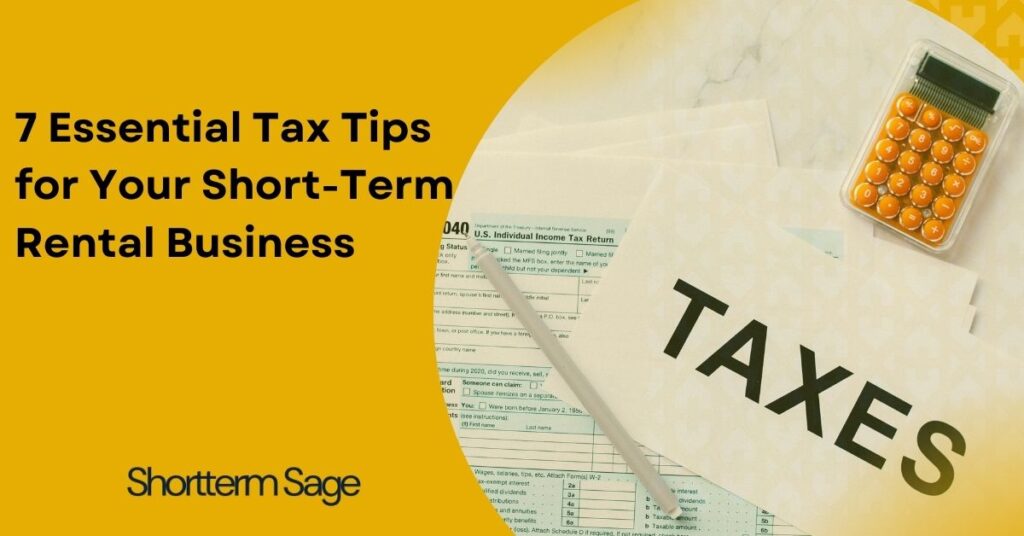
Managing a short-term rental business, such as an Airbnb, comes with its own set of challenges, especially when it comes to taxes. Understanding how to optimize your tax situation can make a significant difference in your profitability. Here are seven essential tax tips to help you navigate the complexities of taxes in your short-term rental business.
When operating a short-term rental, it’s crucial to understand your tax obligations. This includes income tax, property tax, and sales tax. Each of these can significantly impact your bottom line. Make sure to familiarize yourself with local tax laws as they can vary greatly by location.
One of the best practices for managing your taxes effectively is to keep detailed records of all your income and expenses. This includes receipts for repairs, maintenance, and any supplies you purchase for your rental. A well-organized record-keeping system will simplify the tax preparation process and help you maximize your deductions.
Consider using accounting software like QuickBooks to track your finances. This can help you categorize expenses and generate reports for your CPA when tax season arrives.
As a rental property owner, you have access to various tax deductions that can help reduce your taxable income. Here are some common deductions you should consider:
To streamline your accounting and make tax season easier, it’s advisable to separate your business and personal finances. Open a dedicated bank account and obtain a business credit card for your rental activities. This separation not only simplifies record-keeping but also ensures that you don’t accidentally mix personal expenses with business expenses.
Tax laws can be complex and vary significantly from one jurisdiction to another. Consulting with a tax professional who specializes in real estate can provide you with valuable insights and help you navigate your specific tax situation. They can also assist you in identifying all possible deductions and credits you may qualify for.
There are many tools available that can help you manage your rental business more efficiently. Software solutions like property management systems can help automate tasks such as booking, invoicing, and communication with guests. Additionally, these systems often include financial tracking features that can simplify your accounting process.
Tax laws are subject to change, so it’s important to stay informed about any new regulations that may affect your short-term rental business. Subscribe to industry newsletters, join local real estate groups, or consult with your CPA regularly to ensure you are aware of any changes that could impact your taxes.
By implementing these seven tax tips, you can optimize your short-term rental business and ensure that you are effectively managing your tax obligations. Remember, proactive tax planning is key to maximizing your profits and minimizing your tax liability.
Our reviews are made by a team of experts before being written and come from real-world experience. Read our editorial process here.
Some of the links in this article may be affiliate links, which can provide compensation to us at no cost to you if you decide to purchase a paid plan. These are products we’ve personally used and stand behind. This site is not intended to provide financial advice. You can read our affiliate disclosure in our privacy policy.
About the author:
This website is operated and maintained by Short Term Sage LLC. Use of the website is governed by its Terms Of Service and Privacy Policy.
Short Term Sage LLC may link to content or refer to content and/or services created by or provided by third parties that are not affiliated with Short Term Sage LLC. Short Term Sage LLC is not responsible for such content and does not endorse or approve it.
We use cookies to help improve, promote and protect our services. By continuing to use this site, you agree to our privacy policy and terms of use.